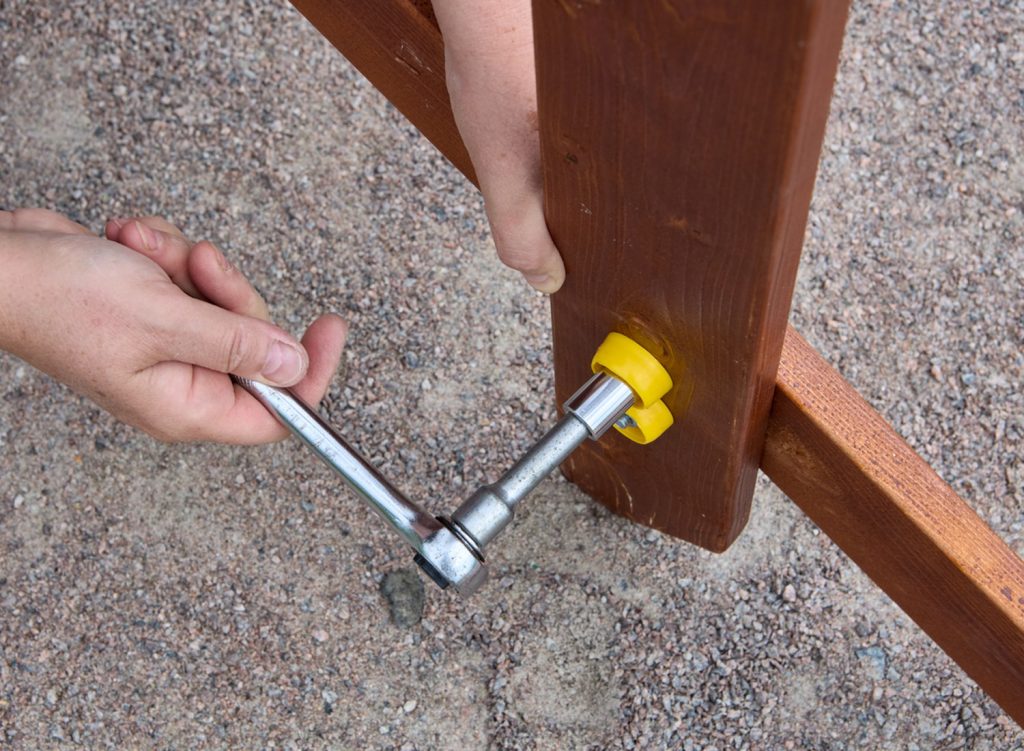Socket Wrench vs Ratchet: The Differences and When to Use Each

Mechanical and woodworking tasks require precision, and the choice of tools is crucial for success. Socket wrenches and ratchet wrenches are common tools, but they have distinct features and purposes. This blog serves as a straightforward guide, exploring the differences between the two and providing insight so you can make informed decisions based on the task at hand.
By understanding the unique characteristics of each tool, whether you’re a seasoned mechanic or woodworker, or new to tools in general, you’ll gain clarity on when and how to effectively use socket wrenches or ratchets.
What is a Socket Wrench?
A socket wrench, also known as a socket spanner, is a hand tool used for tightening or loosening bolts and nuts. It consists of a handle with a ratcheting mechanism and interchangeable sockets of different sizes. The sockets are attached to the handle using a square drive, allowing for easy interchangeability to fit different sizes of bolts and nuts.
When to Use a Socket Wrench
Socket wrenches are best suited for tasks that require a wide range of bolt and nut sizes. Due to their interchangeable sockets, they can easily fit various sizes without the need for multiple tools. They’re better for tasks that require high torque as they have a stronger grip on bolts and nuts compared to ratchets. Socket wrenches are also ideal for confined spaces where a ratchet wrench may not fit.
What is a Ratchet Wrench?
A ratchet wrench is a hand tool used for tightening or loosening bolts and nuts. It also consists of a handle with a ratcheting mechanism, but unlike the socket wrench, it has a fixed square drive size and does not require interchangeable sockets. Instead, ratchet wrenches have specialized sockets with different sizes built into the tool.
When to Use a Ratchet Wrench
Ratchet wrenches are best suited for tasks that require a specific bolt and nut size. As they have fixed sockets, they are best used for repetitive tasks involving the same size of bolts and nuts. The precision turning offered by ratchet wrenches also comes in handy when you need to toggle swiftly between tightening and loosening.
The Differences
While both socket wrenches and ratchet wrenches serve the same purpose of tightening or loosening bolts and nuts, there are several key differences between them:
Interchangeable vs Fixed Sockets
As mentioned earlier, socket wrenches have interchangeable sockets of different sizes while ratchets have fixed square drive sizes. This makes socket wrenches more versatile as you can use them for a wider range of bolt and nut sizes.
Ratcheting Mechanism
Both tools have a ratcheting mechanism that allows for continuous rotation in one direction while preventing motion in the opposite direction. However, socket wrenches have a switch that allows you to reverse the ratcheting direction, while ratchet wrenches have a lever on the handle that controls the ratchet direction.
Ease of Use
Ratchet wrenches are generally easier to use as they only require one hand to operate, while socket wrenches may require two hands to hold the handle and socket in place.
Durability
Socket wrenches are typically more durable as they have fewer moving parts compared to ratchet wrenches.
Conclusion
Socket wrenches and ratchet wrenches are both essential tools in any mechanic’s toolbox. While they may seem similar, understanding their differences and when to use each tool can greatly improve efficiency and productivity. Socket wrenches are more versatile and durable, making them suitable for a wider range of tasks, while ratchet wrenches excel at quick jobs and repetitive tasks. Depending on the task at hand, it is important to choose the right tool for the job to get the best results.
